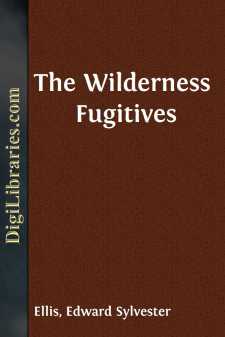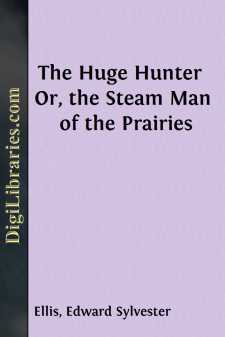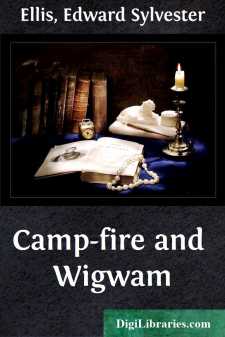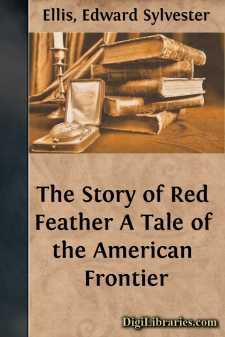Categories
- Antiques & Collectibles 13
- Architecture 36
- Art 48
- Bibles 22
- Biography & Autobiography 813
- Body, Mind & Spirit 142
- Business & Economics 28
- Children's Books 17
- Children's Fiction 14
- Computers 4
- Cooking 94
- Crafts & Hobbies 4
- Drama 346
- Education 46
- Family & Relationships 57
- Fiction 11829
- Games 19
- Gardening 17
- Health & Fitness 34
- History 1377
- House & Home 1
- Humor 147
- Juvenile Fiction 1873
- Juvenile Nonfiction 202
- Language Arts & Disciplines 88
- Law 16
- Literary Collections 686
- Literary Criticism 179
- Mathematics 13
- Medical 41
- Music 40
- Nature 179
- Non-Classifiable 1768
- Performing Arts 7
- Periodicals 1453
- Philosophy 64
- Photography 2
- Poetry 896
- Political Science 203
- Psychology 42
- Reference 154
- Religion 513
- Science 126
- Self-Help 84
- Social Science 81
- Sports & Recreation 34
- Study Aids 3
- Technology & Engineering 59
- Transportation 23
- Travel 463
- True Crime 29
The Wilderness Fugitives
Categories:
Description:
Excerpt
CHAPTER I.
ALONE AND TOGETHER.
The reader will recall that at the close of The River Fugitives the narrative left our friends in a situation, apparently, of safety; and the belief, on the part of Jo Minturn, his sister Rosa and Ned Clinton, was strong that, in their flight from the dreadful scenes of the Wyoming massacre of July, 1778, they had left all dangers behind. They were confident that, under the guidance of the matchless Mohawk, Lena-Wingo (temporarily absent in quest of food), the road to security was beset by no perils worth the mention.
But, as has also been intimated, they were altogether wrong in this belief. Brother and sister and Ned Clinton were seated near each other on a fallen tree, and it was not yet fully dark when the soft tread of a moccasin was heard on the leaves, and they saw the tall, slim figure of the Mohawk come forth like some spirit of the forest to ask them their business in thus invading his domains. The supposition was so general that he had gone in quest of food, that a common instinct led them to look to see whether he brought anything of that nature with him. There was enough light left to show that he carried nothing but his gun.
"Well, Jack," said Ned, "we thought you had gone out foraging, but if you did, you didn't make much success of it."
"Lena-Wingo didn't hunt eat—he hunt something more."
"Well, did he find it?" asked Rosa, who was more daring in her questions than the others thought it prudent to be.
"Yes—he find him."
"Why don't you bring him here, then, that we may see him?"
"He gone," was the direct but rather unsatisfactory answer, for there was no telling to what he referred.
Rosa was on the point of questioning him further, when it struck her that if he desired them to know what he had been doing he would tell them only when he chose. And so she forbore.
"I hope the result was pleasing to you," ventured Ned Clinton, on what seemed forbidden ground.
"When Lena-Wingo look for Iroquois in canoe, he take knife along."
As this remark was clearly intended in the light of a joke, all felt the duty of laughing at it, although the mirthful inclination was not very tremendous, coming from such a grim source.
"Jo," added the redskin, after waiting for the applause to wear itself out, "want to see you."
The young man thus appealed to sprang to his feet, and placed himself beside the red scout, wondering what he could have to say that he should keep from the rest. Ned and Rosa saw them talking together for a minute or two, when they turned, as if to walk deeper into the woods. At that moment, Jo looked around and called to them in a cautious voice, just loud enough to be heard:
"We won't be back for some time."
This was a curious proceeding, indeed; but there was no use of protesting against it. The Mohawk had a way of doing as he pleased about such matters, and it was useless to interfere. When they had been gone several minutes, it struck Ned that, as they would not be back for awhile, he was given a chance to converse with Rosa, such as had not been his since the invasion of the Wyoming valley.
The consciousness came upon him so suddenly that he was not a little confused by the problem of how he was to improve the opportunity. True, he had spent many hours in the company of the beautiful girl, but it seemed to him that never had he felt as he did then. He was sure that she must be aware of the unutterably tender affection he held toward her—a feeling that had grown within the last few days, until it took possession of his being. Not until the life of Rosa Minturn was placed in peril did he comprehend how much he loved her. When there was reason to fear she was in the hands of the Iroquois or the Tory colonel, and that he might never see her more, then it was that it seemed his heart must break from grief alone. And when, a short time after, she was found without a hair of her head injured, his joy was correspondingly great—so great, indeed, that he was sure all noticed it, even Rosa herself....



![Adrift on the Pacific
A Boys [sic] Story of the Sea and its Perils](https://digilibraries-com.s3.eu-central-1.amazonaws.com/covers/5b1ab9f1-643e-492e-89a5-0a940f25d89d.jpg)








